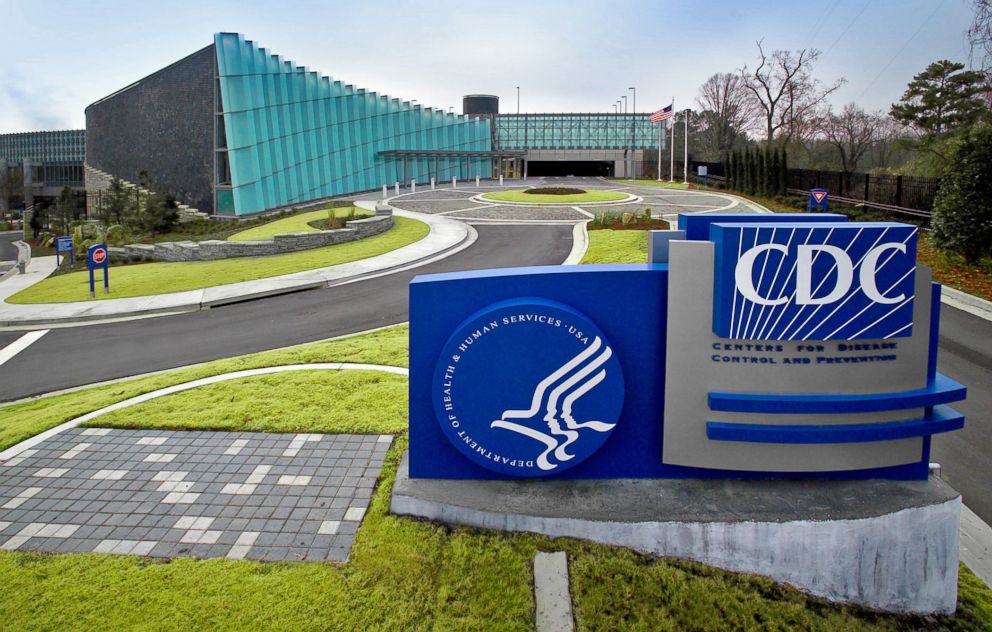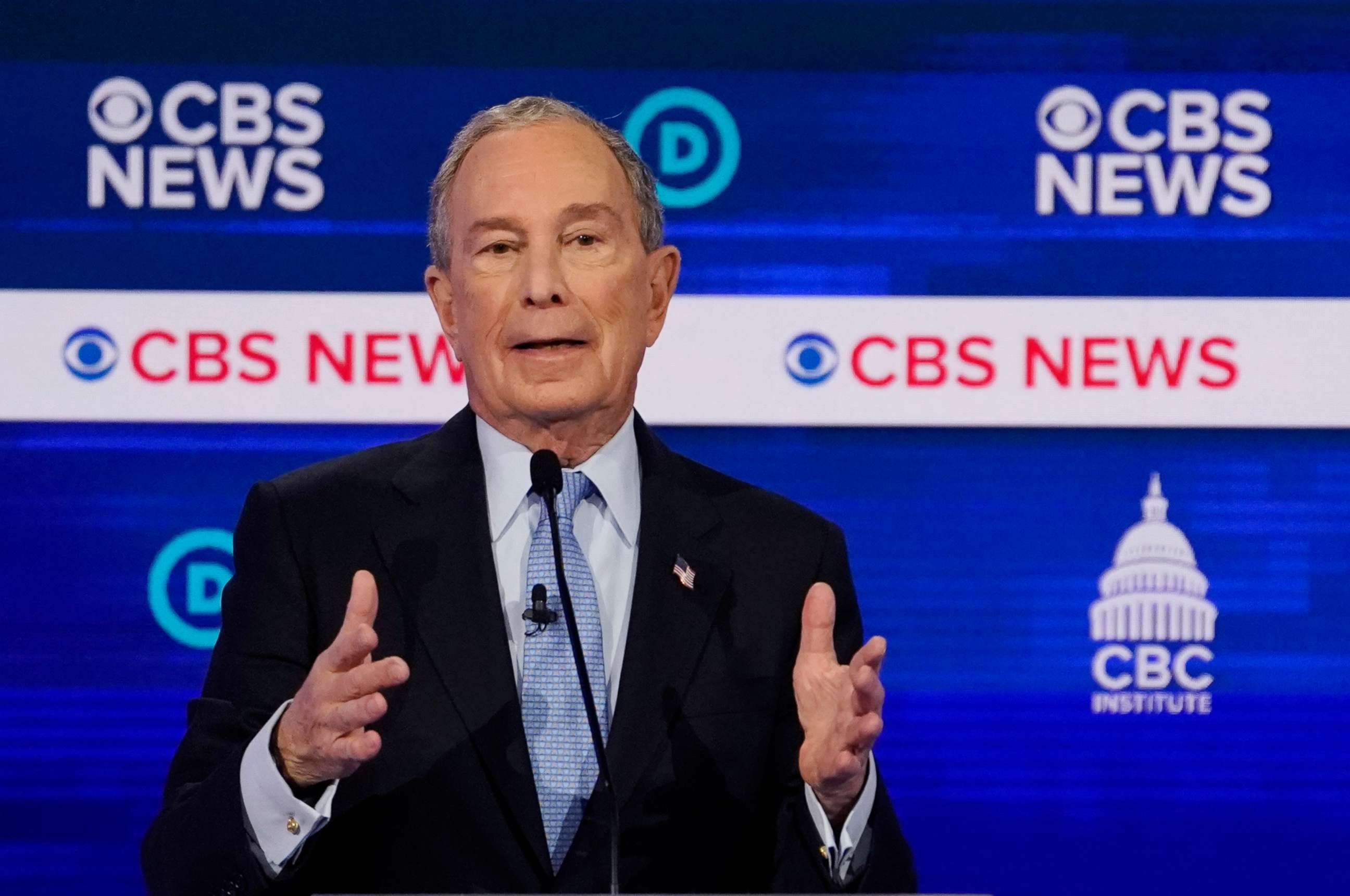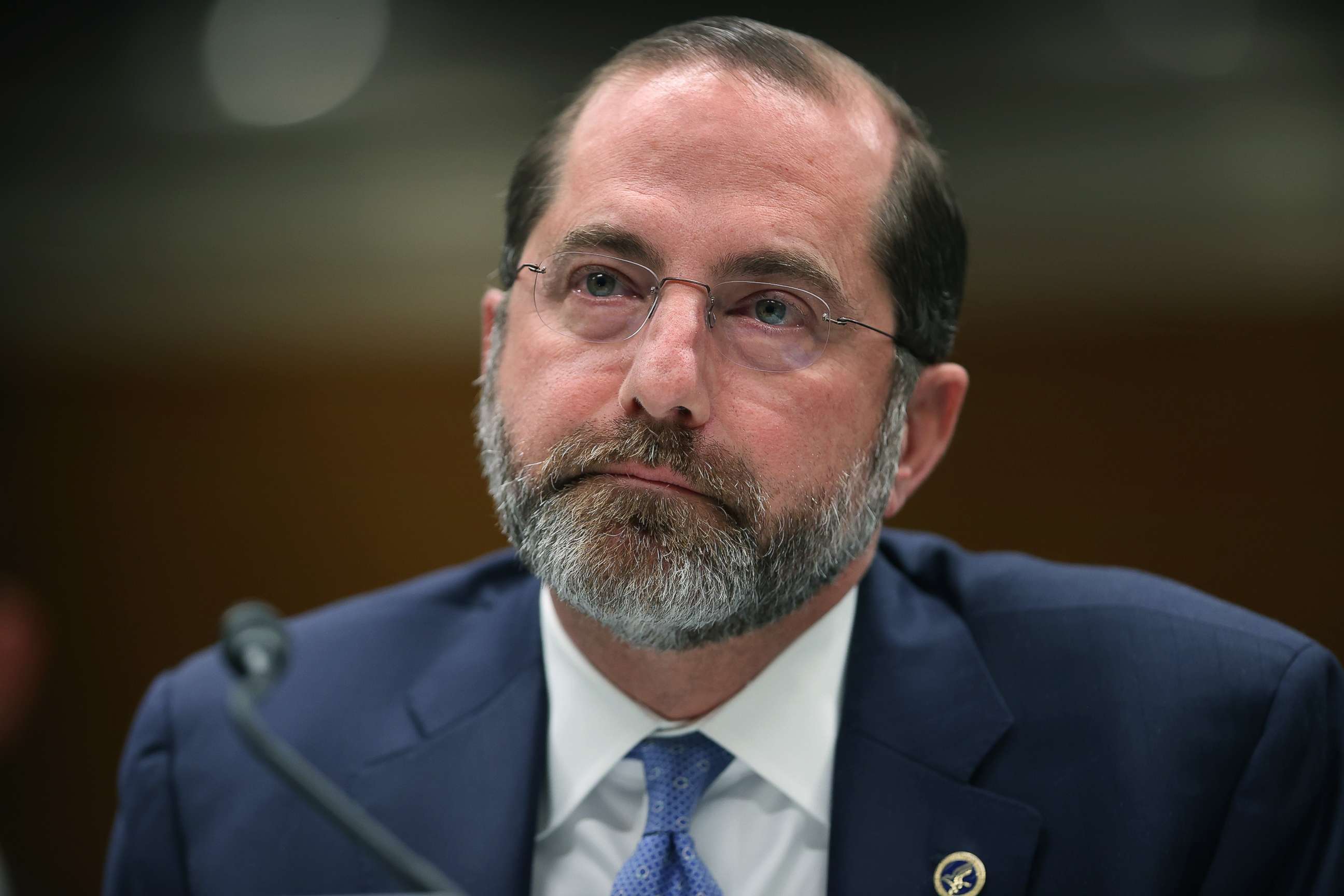Did Trump try to cut the CDC's budget as Democrats claim?: ANALYSIS
The allegations come amid the emergency over the COVID-19 coronavirus.
President Donald Trump is taking heat from Democrats for proposing budget cuts to the Centers for Disease Control and Prevention amid growing fears about a new coronavirus outbreak in the United States, but administration officials say CDC funding has steadily increased since Trump took office.
An ABC News analysis of the president’s budget proposals compared to the congressionally approved spending plans ultimately enacted show both claims are true.

The president introduced his fiscal year 2021 budget proposal on Feb. 10, just 11 days after the World Health Organization declared the coronavirus outbreak a public health emergency of international concerns. The spending plan included a 16 percent reduction in CDC funding from the 2020 spending levels.
In fact, all of Trump’s budget proposals have called for cuts to CDC funding, but Congress has intervened each time by passing spending bills with year-over-year increases for the CDC that Trump then signed into law.

During the Democratic presidential debate in South Carolina Tuesday, former New York City Mayor Mike Bloomberg accused the president of defunding the CDC, claiming the result is that “we don’t have the organization that we need.”
On Wednesday, Rep. Adam Schiff, D-Calif., tweeted, “The Trump Administration has slashed CDC funding and left positions charged with managing pandemics vacant. The budget request for Coronavirus funding shows they still don’t understand the magnitude of the threat.”
Asked about the criticism at a House budget hearing Wednesday, Health and Human Services Secretary Alex Azar said that, “during the president’s tenure, every part of our preparedness and infectious disease program activity has been enhanced and expanded.”
Azar went on the say the president’s budget proposals are just the jumping-off point for budget negotiations.
“Budgets are like the first move in a chess game with, I’ll be honest, a fairly profligate Congress,” Azar said. “And the president starts that move with a budget knowing that we’re going to get a lot higher there as we work with Congress.”

As health officials gear up to confront a potential outbreak, the administration is asking Congress to authorize an additional $2.5 billion in supplemental funding for 2020 aimed at accelerating vaccine development and other containment measures. Senate Democratic leader Chuck Schumer has suggested that figure is not sufficient, and Congress should allocate an additional $8.5 billion for fighting coronavirus.
But it’s not just the president’s budget proposals that are under the microscope as fears of a new coronavirus outbreak mount. Bloomberg also took aim at Trump for eliminating a position from the National Security Council responsible for coordinating administration efforts to combat infectious disease.
“The president fired the pandemic specialist in this country two years ago,” Bloomberg said. “So, there's nobody here to figure out what the hell we should be doing.”
In 2018, Trump administration eliminated the position of senior director for global health security and biodefense as part of a broader downsizing of the NSC spearheaded by then-National Security Adviser John Bolton. Earlier this month, 27 Democratic senators sent a letter to current National Security Adviser Robert O’Brien urging him to reinstate the position and asking him to clarify how the White House plans to handle global health security threats.
“Families concerned about the novel coronavirus threat need to know the NSC has a dedicated, senior official with appropriate expertise and authority to address the domestic and global health threats from the virus,” they wrote. “It is of paramount importance that this person approaches this role though a public health lens.”
The senators requested a response by Feb. 27, but the NSC did meet that deadline, nor did it respond to a request for comment from ABC News.
Retired Rear Adm. Timothy Ziemer held the position of senior director for global health security and biodefense on the NSC from April 2017 to July 2018. He previously coordinated the President’s Malaria Initiative under President George W. Bush, and is now the senior deputy assistant administrator for the Bureau for Democracy, Conflict, and Humanitarian Assistance at the US Agency for International Development (USAID).
Cutbacks at that agency under the Trump administration are also receiving new scrutiny.
Last year, the USAID program known as PREDICT was shuttered. The initiative was launched in 2009 and designed to improve the “detection and discovery of zoonotic viruses with pandemic potential.” The program is credited with identifying nearly a thousand new zoonotic viruses, which are transmitted between animals and humans, and influencing the response effort currently being employed to combat the coronavirus, which is a zoonotic infection.
Earlier this month, Sen. Dianne Feinstein, D-Calif., sent a letter to the head of USAID asking him to reinstate the program in light of the spread of coronavirus.
“The current deadly viral outbreak and its quick appearance in the United States make clear that PREDICT’s contributions to zoonotic disease surveillance and forecasting must continue,” she wrote. “We simply cannot afford to go backwards and jeopardize the success we’ve seen over the last ten years.”
The president has defended his administration’s response and preparedness efforts as “incredible.” On Wednesday, he tapped Vice President Mike Pence to lead a coronavirus task force formed late last month that was being led by Azar. Other members of the task force include NSA O’Brien, CDC Director Robert Redfield, and National Institute of Allergy and Infectious Diseases Director Anthony Fauci.




